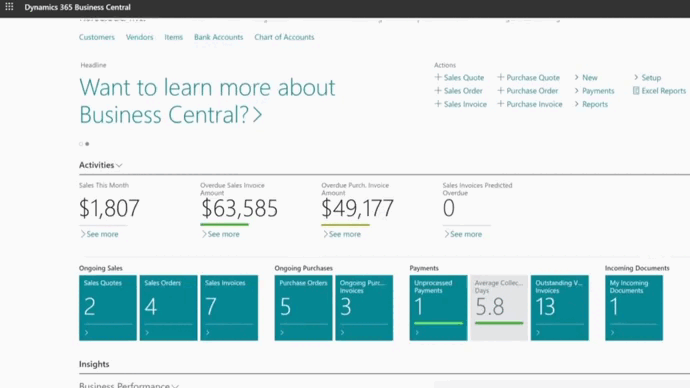In today’s fast-moving business environment, distributors face an unprecedented level of complexity. Customers expect faster deliveries, accurate orders, and complete visibility across the supply chain. Global disruptions, competitive pressure, and tighter margins leave little room for error. This is where distribution management software becomes a game-changer.
By centralizing inventory, warehouse, order, and shipping processes into a single platform, distribution management software enables companies to streamline operations, reduce costs, and deliver a superior customer experience. In this guide, we’ll explore everything you need to know about distribution management software: what it is, why it matters, its key features and benefits, the challenges it solves, examples of leading solutions, and how Gestisoft can help you choose the right system for your business.
What is distribution management software?
Distribution management software is a digital platform designed to integrate and automate the core processes that keep distribution businesses running smoothly. Unlike standalone inventory tools or warehouse systems, it provides a complete view of the supply chain, from procurement to final delivery.
It is often compared with ERP (enterprise resource planning), CRM (customer relationship management), and WMS (warehouse management systems). While these overlap, distribution management software focuses specifically on the unique needs of distributors: coordinating stock, sales, logistics, and financials in one cohesive environment.
The goal is simple but powerful: eliminate silos, improve efficiency, and enable smarter decision-making in distribution operations.
Speak with an ERP expert today
Contact us for a free consultation and discover how our team can assist you with a distribution management software.
 Free discovery call
Free discovery call
Why is distribution management software important?
The distribution industry has changed dramatically in the last decade. Customers, influenced by giants like Amazon, now expect instant updates, next-day deliveries, and flawless accuracy. At the same time, supply chain disruptions — from global pandemics to geopolitical events — expose vulnerabilities in traditional operations.
For distributors, this means:
- Meeting higher customer expectations without exploding costs.
- Gaining visibility across global or multi-location warehouses.
- Protecting margins by optimizing stock levels and reducing waste.
- Staying compliant with regulations and reporting requirements.
Without the right systems, distributors risk inefficiencies, dissatisfied customers, and shrinking profitability. Distribution management software equips businesses with the tools to remain resilient and competitive in this challenging environment.

Key features of distribution management software
Every distributor’s needs are unique, but the best distribution management software platforms typically include these essential features:
Inventory management
Track stock levels across multiple warehouses, monitor product movement in real time, and reduce risks of overstocking or stockouts.
Warehouse management
Support efficient picking, packing, and shipping processes. Features like bin management, barcode scanning, and automation boost productivity inside the warehouse.
Order management
Simplify order entry, automate sales workflows, and manage returns seamlessly. Many systems integrate quote-to-cash cycles for faster fulfillment.
Shipping & logistics
Connect with carriers, manage shipping labels, and automate logistics coordination to ensure timely delivery.
What is the ROI of Business Central?
Download your free ROI Excel calculator to discover how much savings you can make with Business Central.

Financial integration
Link distribution activities with accounting and finance, allowing teams to see true profitability by product, order, or customer.
Analytics & reporting
Use dashboards and forecasting tools to understand demand patterns, identify inefficiencies, and plan strategically.
Cloud and mobility
Modern distribution management software is cloud-based, enabling access from anywhere and supporting mobile devices for field teams.

Benefits of distribution management software
Investing in distribution management software delivers both immediate and long-term benefits:
- Operational efficiency: Automate repetitive tasks, reduce errors, and streamline processes.
- Cost savings: Control stock levels, reduce carrying costs, and minimize waste.
- Customer satisfaction: Faster, more accurate order fulfillment improves customer loyalty.
- Scalability: Support growth by easily adding new warehouses, products, or sales channels.
- Data-driven insights: Real-time reporting supports smarter, more confident decisions.
- Compliance and control: Meet industry regulations, improve traceability, and mitigate risks.
Challenges businesses face without distribution management software
Many distributors still rely on spreadsheets or disconnected systems to manage operations. This approach creates several challenges:
- Manual errors: Paper-based processes lead to inaccuracies in orders and inventory.
- Stock issues: Without real-time visibility, businesses face costly stockouts or excessive inventory.
- Siloed systems: Accounting, sales, and logistics often don’t communicate, creating delays.
- Limited insights: Decision-makers lack the data needed to optimize performance.
- Customer frustration: Delays and errors lead to lost business.
Distribution management software addresses these challenges by unifying processes and providing end-to-end control.

Top distribution management software examples
While there are many solutions available, here are some of the most recognized distribution management software platforms. These are the software made for distributors:
Microsoft Dynamics 365 Business Central
An all-in-one ERP for small to mid-sized businesses, Dynamics 365 Business Central integrates distribution, inventory, finance, and customer management. With Gestisoft as your partner, it can be tailored to fit your exact distribution needs, offering scalability, flexibility, and local support.
SAP Distribution Software
SAP provides robust wholesale distribution solutions designed for global enterprises. Its strength lies in advanced analytics, supply chain planning, and scalability.
Sage ERP for Distribution
Sage offers ERP solutions that combine financial management with distribution-focused workflows. It is well-suited for medium-sized distributors seeking strong accounting capabilities.
NetSuite
NetSuite provides a cloud-based ERP with strong distribution and inventory features, popular among fast-growing companies.
Other options
Platforms like Acumatica, Fishbowl, and Cin7 also serve distribution businesses, each with unique strengths in niche areas.
Book your free consultation with our experts today
Contact us to learn more about Microsoft Dynamics 365 Business Central and how it can simplify your distribution processes.
 Free discovery call
Free discovery call
How to choose the right distribution management software?
Choosing the best distribution management software depends on your business size, industry, and goals. Consider:
- Fit for your industry and size: Some platforms are enterprise-focused, while others excel for SMBs.
- Cloud vs. on-premise: Cloud systems offer scalability and remote access; on-premise may be preferred for strict compliance needs.
- Integration: Ensure it works seamlessly with CRM, ERP, eCommerce, or other critical systems.
- Customization & scalability: Your software should grow as your business expands.
- Support & implementation partner: Having a trusted partner like Gestisoft ensures a smooth rollout and long-term success.
- ROI: Look at total cost of ownership, including licenses, support, and training, compared to expected savings and efficiencies.
Trends shaping distribution management software in 2025 and beyond
To remain competitive, distribution management software is evolving with new technologies and market demands:
- Cloud-native adoption: Cloud solutions dominate new implementations, offering flexibility and lower upfront costs.
- Artificial intelligence (AI): Predictive analytics help forecast demand and optimize stock.
- Omnichannel integration: Seamless connection between eCommerce platforms, marketplaces, and physical distribution.
- Sustainability focus: Green logistics and carbon footprint tracking are becoming priorities.
- Mobile-first design: Mobile apps empower warehouse teams and field staff with real-time data access.
These trends will continue to define the industry, making it essential to invest in modern, adaptable platforms.

Why choose Gestisoft for distribution management software?
At Gestisoft, we understand the challenges distributors face. As a certified Microsoft partner, we specialize in implementing Dynamics 365 Business Central, a leading solution for distribution management.
Here’s why businesses trust Gestisoft:
- Local expertise: Serving Canadian and Québec-based businesses with tailored solutions.
- Proven track record: Years of experience in ERP and CRM implementations.
- Customization: Solutions designed around your specific distribution workflows.
- Ongoing support: From implementation to optimization, our team ensures your success.
Partnering with Gestisoft means more than software — it means having a long-term ally for growth.
-
It’s a platform that centralizes inventory, warehouse, order, shipping, and financial processes to streamline distribution operations.
Conclusion
Distribution management software is no longer optional — it’s the backbone of competitive, efficient, and customer-focused distribution businesses. By integrating critical processes, it empowers organizations to cut costs, boost customer satisfaction, and scale with confidence.
If you’re ready to transform your distribution operations, Gestisoft is here to help. With our expertise in Microsoft Dynamics 365 Business Central, we’ll guide you through implementation, customization, and long-term optimization.
Liked what you just read? Sharing is caring.

September 30, 2025 by Kooldeep Sahye by Kooldeep Sahye Marketing Specialist
Fuelled by a passion for everything that has to do with search engine optimization, keywords and optimization of content. And an avid copywriter who thrives on storytelling and impactful content.

